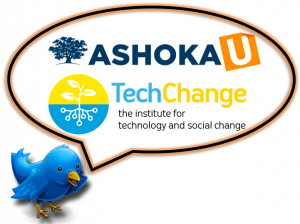Have ideas for new models in higher education that use technology and social entrepreneurship? Interested in what universities will look like 10, 20 and 50 years in the future? Join TechChange and AshokaU on Friday July 22 from 1-2pm EST for a live Twitter chat on the impact of technology and social entrepreneurship on higher education.
Topic: How will technological innovation and social entrepreneurship transform higher education?

